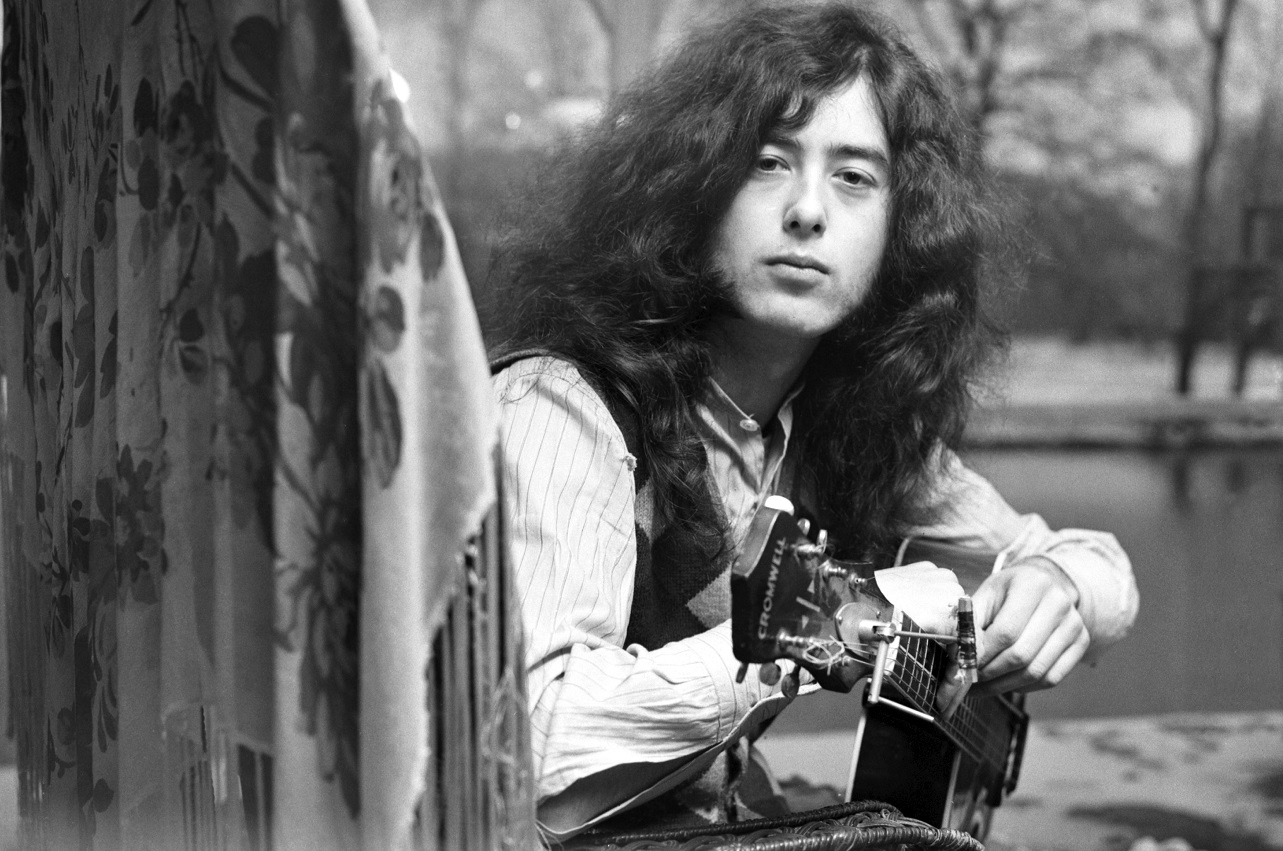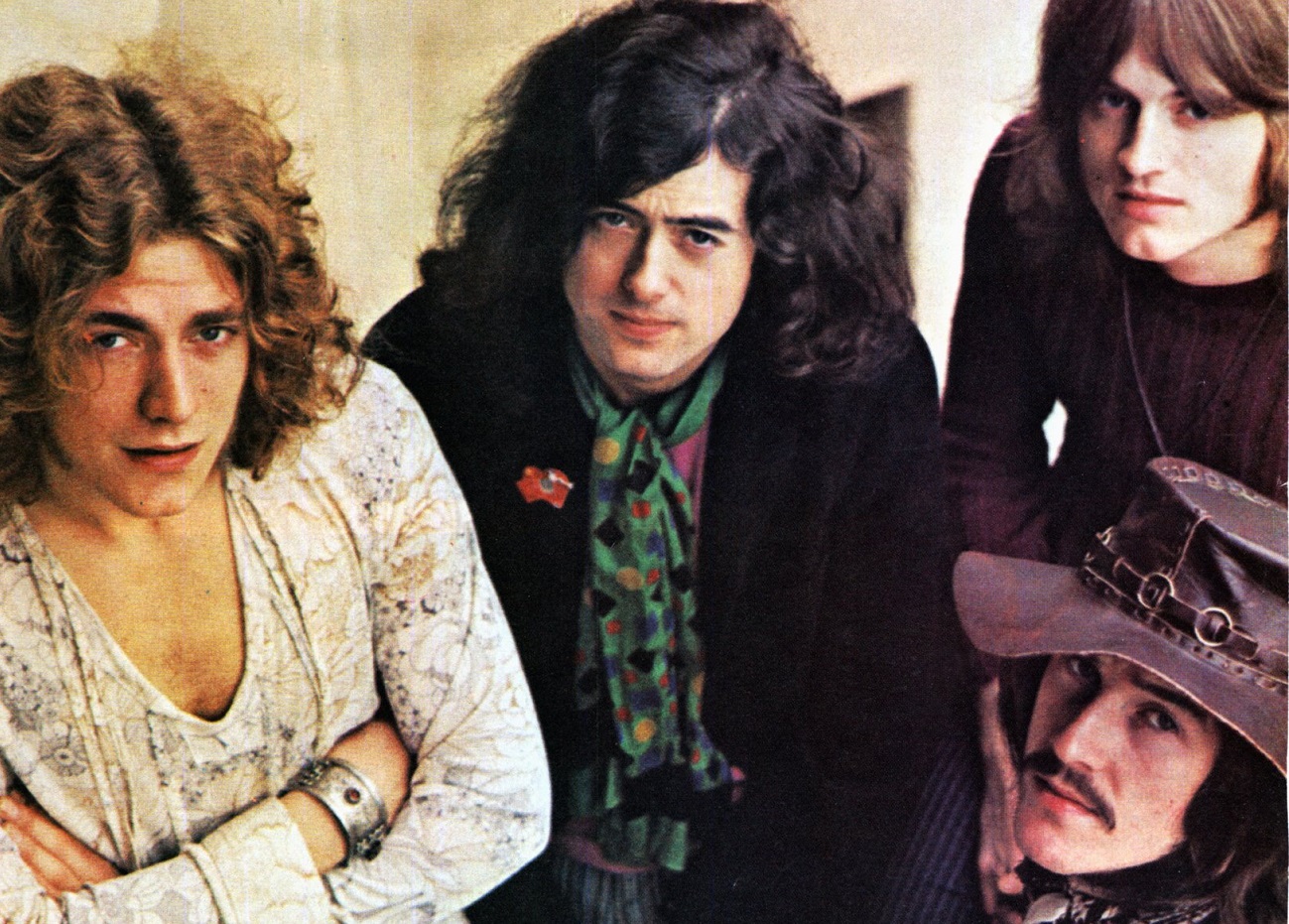What Jimmy Page Said Separated Led Zeppelin From The Beatles and Other Bands
How did Led Zeppelin grab a hold of rock fans at the end of the ’60s? While the band’s debut LP sold well (charting at No. 10 in America), that couldn’t explain the Zeppelin phenomenon by late ’69. It clearly began with the band’s now-legendary live performances.
Everyone from Aerosmith to The Who’s Roger Daltrey recalled their first Zeppelin shows vividly, and it didn’t take long for Zep to go from opening act to headliner. Audiences were seeing something they hadn’t got from the Rolling Stones or The Who.
“The Rolling Stones, while fashionably louche, played songs,” Lisa Robinson wrote (via Vanity Fair) after covering Zep. “Led Zeppelin took the blues, added Eastern influences, and switched into acoustic folk in the middle of a number. […] You never knew what they were going to do next. They took rock music to a progressive new level.”
Looking back on his band’s run, Zep mastermind Jimmy Page took a similar view. To Page, you could grasp the group’s essence by hearing its live performances over the space of a few months. The band’s explorations on stage separated Zep from the others on the scene — The Beatles included.
Jimmy Page pointed to how Led Zeppelin kept evolving on stage, unlike The Beatles

As Robinson noted, Led Zeppelin didn’t play jazz or operate like a jam band. However, they did feed off one another’s energy and would go rushing off into new directions whenever the spirit moved them on stage. That kept the band members on their toes as much as the audience.
“There’s a lot of concentration on stage in a Zeppelin concert,” John Paul Jones said in a 2003 interview. “You’ve got to be ready.” When Page discussed the The BBC Sessions (1997) in Light and Shade, he used it as an opportunity to highlight how the group was always evolving.
“Led Zeppelin was a band that would change things around substantially each time it played,” Page said. He held up the disc’s two versions of “You Shook Me” as an example. “The version that opens the album … doesn’t compare to the second version, which was recorded only a few months later. “
For comparison, Page suggested listeners check out BBC recordings by The Beatles over the space of a few months. “If they have two or three versions of ‘Love Me Do’ or whatever, they’ll all be identical,” Page said in Light and Shade. “That was the difference between our contemporaries and us: Led Zeppelin was really moving the music all the time.”
Paul McCartney spoke of The Beatles’ tendency to settle on a live act and stick to it

In late ’69, after The Beatles had released Abbey Road, Paul McCartney spoke to the BBC about his band’s plans for future concerts (i.e., if they had any). To McCartney, the idea of the Fab Four performing at large venues on tour didn’t sound appealing, creatively.
“After [small clubs], you start to perform at Peterborough Empire, Glasgow Empire, and you get an act,” McCartney said. “And we never used to really vary the act. Occasionally, we put a new song in. But we just got an act. Once you knew the act, there wasn’t really much more fun in it. It was normally just, well, here we go again.”
Indeed, that sounds nothing like the Led Zeppelin approach to performing. For Page, Zep’s two versions of “You Shook Me” on The BBC Sessions spoke volumes. “[It] was a subtle indication of how the band was beginning to gel,” Page said. “We were becoming tighter and tighter [on stage], to the point of telepathy.”


